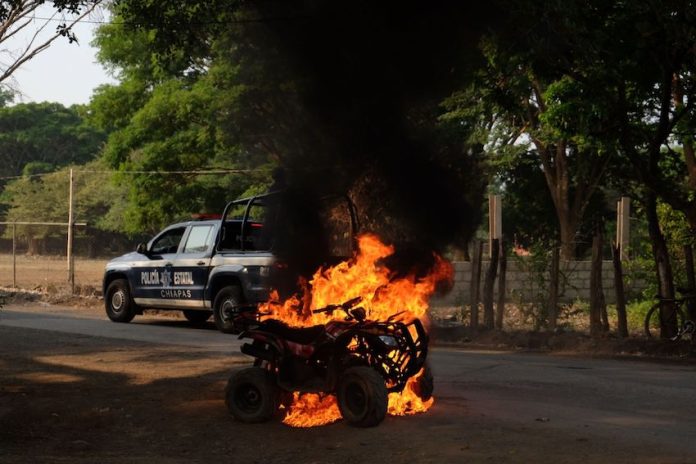About 1,000 people have returned to their homes in Chiapas on Thursday after being displaced due to an outbreak of violence between criminal groups near the border with Guatemala last week.
Residents of Frontera Comalapa, a municipality about 90 kilometers south of Comitán, fled early last week amid gun battles between members of gangs presumably affiliated with the Jalisco New Generation Cartel and the Sinaloa Cartel. The conflict between the rival groups has flared up periodically during a period of over two years.
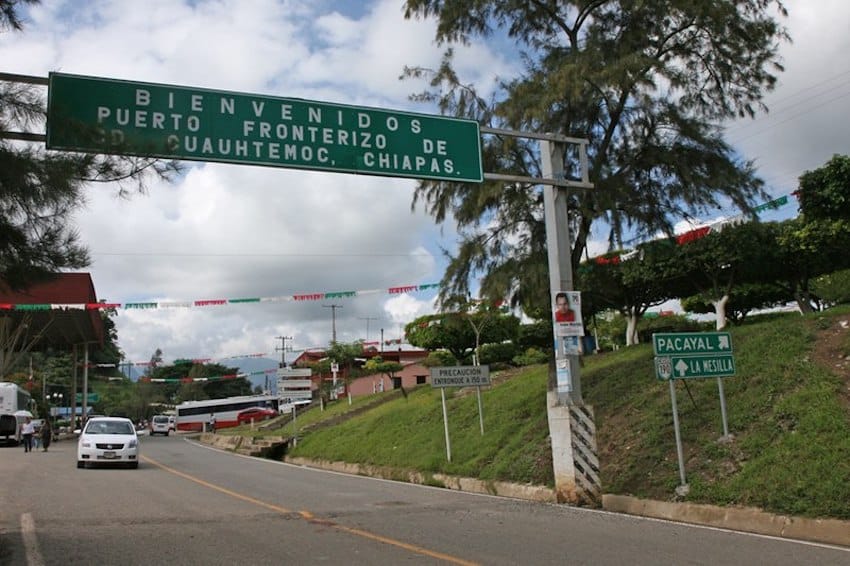
Over 3,000 people were reported as having left their communities due to the recent spate of shootouts, although the National Guard chief in Chiapas denied that the figure was that high.
The EFE news agency and the Milenio newspaper were among the media outlets that said 1,000 people had returned to their homes after fleeing the violence, taking refuge in the nearby municipality of Chicomuselo.
The violence had emptied out the returning residents’ communities of Nueva Independencia, Nueva Libertad and Flores del Grijalva. Soldiers, members of the National Guard and Civil Protection personnel escorted them back home in military vehicles after some 1,500 police and military personnel took control of the area on Wednesday.
“Little by little the situation is normalizing,” said municipal official Humberto Robledo. “Before the arrival of the army, there were people displaced in the mountains, in the streams, … in areas difficult to access,” he said.
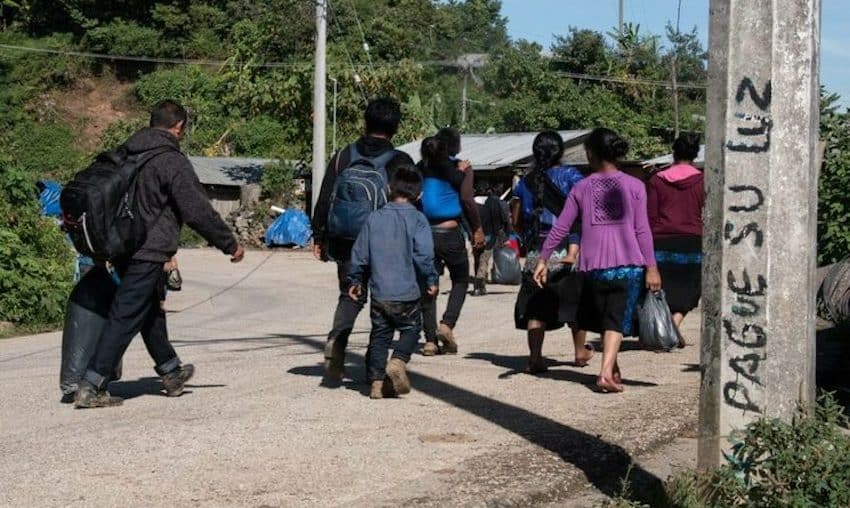
Robledo said that the number of people who fled their homes was unclear but could be as high as 4,000.
Osiel Tomás, who left Frontera Comalapa with his family, told EFE that his family had had to take shelter from stray bullets. Orlando López decided to return home but left his two daughters in Chicomuselo.
“We want to be sure that everything is OK there, and then we’ll come for them later,” López told EFE just before he departed for Frontera Comalapa.
“… We would have liked this protection we have today to have been [there] during the gunfights,” he said.
He called on state and federal authorities to guarantee peace in the border region of Chiapas, and noted that the recent violence forced the closure of schools and disrupted health services.
Human rights organizations have also urged authorities to guarantee peace in Frontera Comalapa and other nearly municipalities.
Rocío Mérida López, a resident of Nueva Independencia, told Milenio that at least four people were abducted by armed men during the outbreak of violence and that criminals were “recruiting men” to swell their ranks.
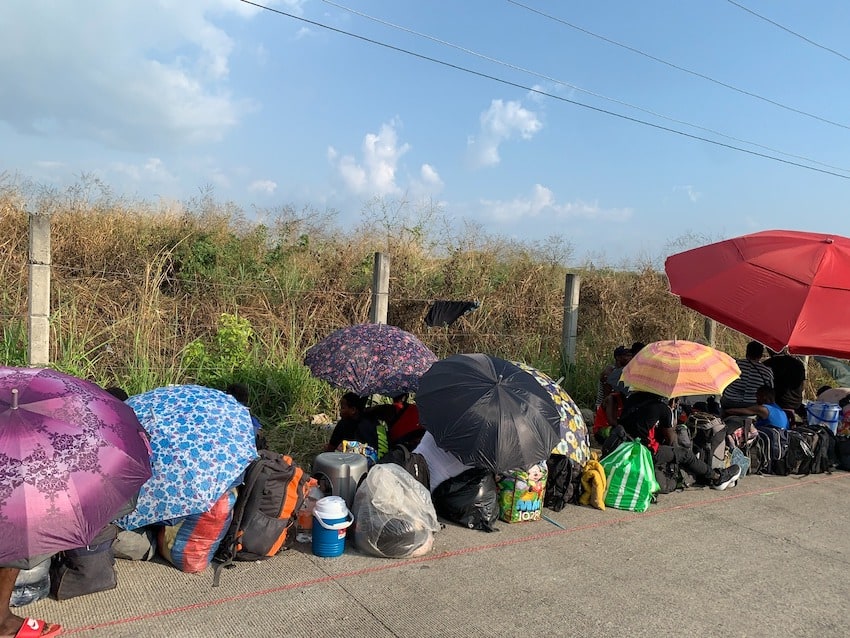
Mérida said she and other residents left their homes “without money, without food, without clothes, without anything.”
According to the Fray Bartolomé de las Casas Human Rights Center, forced recruitment of locals — in addition to shootings and blockades set up by crime groups — have recently occurred in several Frontera Comalapa communities.
Nueva Libertad resident Consuelo López Ramírez and her family stayed inside her father’s home in Nueva Independencia for three days with almost no food as gun battles raged outside.
“I went to see my dad because he was sick, and then we were unable to go out … [for] three days. … There was a lot of gunfire, but thanks to God, we got out alive,” she said.
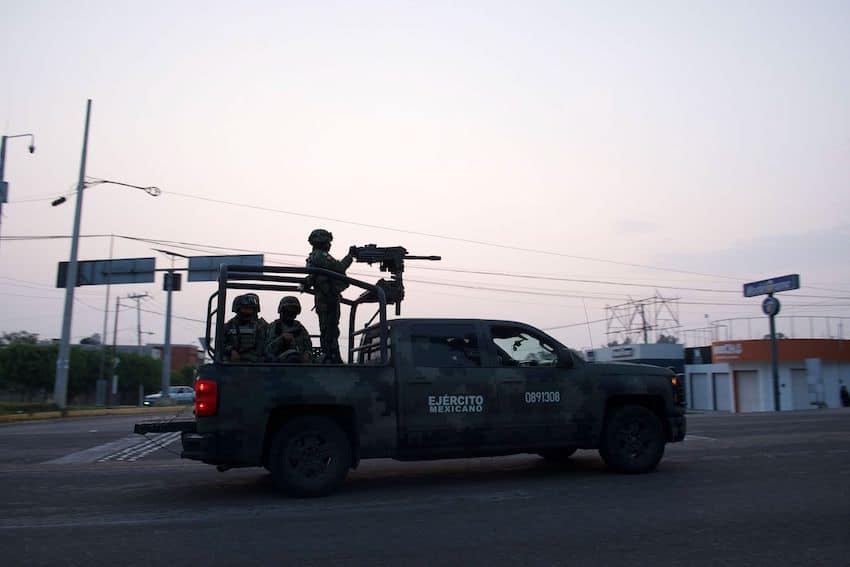
Some 60 people have been reported killed in the confrontations, but the National Guard chief in Chiapas Víctor Fernández Mondragón said that the figure hasn’t been confirmed.
“Three thousand displaced persons and more than 60 people dead were spoken about in the media. So far we haven’t found evidence that verifies this information,” he said Wednesday.
Fernández said Thursday that a “maximum” of 500 or 600 people had left their homes in Frontera Comalapa due to violence.
He also addressed a statement endorsed by hundreds of nongovernmental organizations and over 1,000 individuals that asserted that “Chiapas is on the verge of civil war” due to turf wars between paramilitary groups and “gunmen from several cartels.”
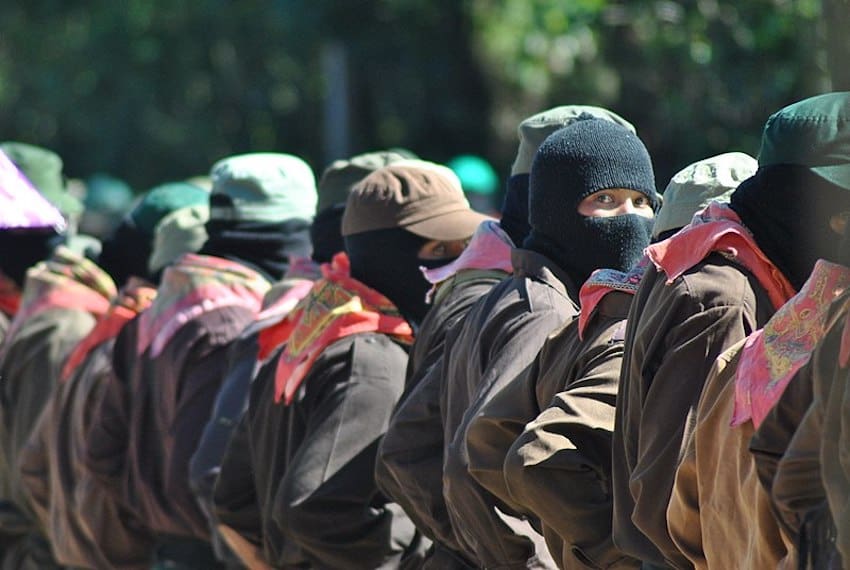
The June 1 statement, issued in support of the Zapatista Army of National Liberation (EZLN) — an organization best known for staging an armed uprising in Chiapas in January 1994 — was endorsed by numerous high-profile figures, including academic Noam Chomsky, former presidential aspirant María de Jesús Patricio Martínez (Marichuy), writer Juan Villoro, film director Alfonso Cuarón and actors Gael García Bernal and Diego Luna.
But Fernández asserted that “there is no civil war” in Chiapas and that authorities, including the National Guard and army, have “at all times … guaranteed and maintained the rule of law,” although that hasn’t appeared to be the case recently in Frontera Comalapa.
While he did acknowledge that cartel presence has increased in the southern state — where according to official data, there were 155 homicides in the first four months of the year — the Chiapas National Guard coordinator said that when security forces entered the municipality, people were going about their business normally and shops were open.
The statement issued in support of the EZLN focuses on attacks on Zapatista communities allegedly carried out by the Regional Organization of Ocosingo Coffee Growers (ORCAO), which the EZLN has previously described as “a paramilitary organization serving the Chiapas state government.”
The statement demanded the “absolute dissolution of ORCAO,” and a thorough investigation into the Chiapas government led by Governor Rutilio Escandón.
“We also demand that the silence of [President] López Obrador cease being an accomplice to the violence in Chiapas,” it added.
With reports from EFE, Milenio, El País and Radio Formula
